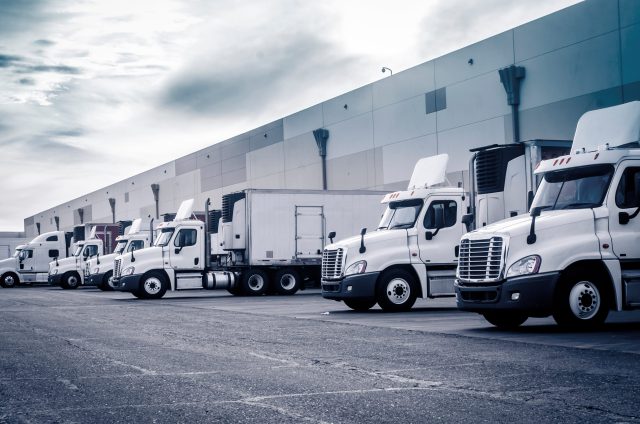
The trucking industry is perhaps one of the most lucrative and vital in modern economies. Most countries have grown significantly over the past decades, wherein increased production and consumption of goods per capita accompanied this growth. Globalization also necessitated transportation because the volume of goods that require transportation escalated as local and international trade channels opened up.
Many entrepreneurs try their luck in joining the trucking business. But not all of them succeed, as running it may not be that easy. To run a trucking business in this contemporary society, you need to know how to streamline your operations efficiently to save operational costs. The industry has become very competitive, so the need to optimize your business processes and extract value from the supply chain through automation and technology is also a must.
It doesn’t matter how good a driver you are, running or managing a trucking business requires careful planning. And with that, here’s a quick guide on how you can build a successful trucking business.
1. Choose The Right Market Or Niche
The trucking industry is a highly competitive business. To work and thrive in this field, you have to be prepared to face difficulties and challenges, including the competition from established truckers and trucking companies.
Like any business, you have to beat your rivals if you want your company to expand. With that in mind, one of the best things you can do for your firm to increase its chances of success is to look for a market or niche that isn’t overly crowded.
Success may be more challenging to achieve when up against established trucking businesses. And so, choosing the appropriate market to serve can help boost your chances of success. For one, you can have the opportunity to routinely receive higher loads by deciding to cater to an underserved market. Therefore, you may want to look into possibilities regarding the specialized loads you might haul. Furthermore, choosing a niche market can give you greater flexibility in load selection that larger enterprises may not have.
2. Prioritize Load Searching
Load searching is critical because loads bring business. If you don’t get loads, you don’t earn any revenue. Therefore, you need a consistent supply of loads. To help you secure the best loads, you can consult and partner with freight dispatchers or load boards. These agencies typically have a strong network of clients and loads which you could benefit from.
Furthermore, you can also boost your loads through building relationships and networking among your potential clients. Establishing and maintaining connections can help you secure a constant supply of loads and income for your business. To start, you can do so by making many direct calls to prospective patrons.
3. Have A Solid Business Plan
Like any business, coming up with a business plan before opening your own trucking company is essential. Business plans are crucial as they generally give your company direction and a purpose. The business strategy should provide insight regarding how you plan to deploy resources, manage your fleet, manage costs, the loads you’ll haul, and how you’ll deal with your primary competitors.
Furthermore, taking management seriously in business is crucial since success does not happen by chance. Every action must be deliberate. It is preferable to have an imperfect plan than no strategy at all. You can always change course and try a different tactic if your initial ideas are unsuccessful. Besides, business plans aren’t meant to be rigid. They should be adaptable because, along the way, you may have to make tough business decisions for your company to flourish. As a result, you may need to revise your approach at various stages in your trucking business.
4. Invest In the Right Equipment
You can either buy or lease the equipment you need for your business. The option you select can be determined by which option is the most cost-effective. However, note that it might be challenging to finance equipment acquisition if you’re starting up because buying new equipment typically demands a substantial capital investment. Therefore, for some, leasing might be a better choice. That said, your business plan needs to clarify how you’ll approach this.
Buying or leasing the right equipment at the right price can be the difference between your business’ success and failure. As a trucking business, your tools and equipment will be one of your most critical assets. As such, you have to acquire the right equipment based on the loads you plan to haul. For example, if you plan on catering to perishable products, you must hire or purchase a refrigerated trailer. On the other hand, if you’re transporting heavy equipment or vehicles, you may need to hire custom trailers and perhaps a more powerful truck.

5. Track Income and Expenditure
Financial management is one of the essential aspects of running a trucking company. To maximize profit, you’ve got to manage income and expenditure. Cash flow management is also vital. Often, sizeable amounts of money are coming and going out of the business. Generally, the bigger the fleet, the greater the volume of financial transactions. Therefore, you have to be diligent in terms of managing your finances.
You can also automate financial management by incorporating fleet management software, which could monitor all the finances efficiently. In logistics, payments are often received weeks after you’ve completed a delivery. So, managing accounts receivable is essential.
Moreover, remember that fuel and labor costs are unavoidable expenditures in trucking. However, with big data and fleet management software, you could look for ways to streamline your income and expenditure. For example, you could use this system to look for quicker travel routes to save fuel.
6. Hire the Best Drivers
Your workforce is also another crucial component of your truck business. Reliable and competent truck drivers are in high demand. However, due to that fact, finding and retaining outstanding drivers may be difficult. For instance, some drivers may wind up being hired by larger businesses, which may be offering them better packages.
And with that, to retain good drivers, you must be willing to provide incentives, benefits, and other compensations. Some examples include receiving bonuses, gift cards, healthcare insurance, and hosting driver appreciation activities.
Conclusion
Most economies depend heavily on the transportation sector to run smoothly. Both people and businesses require resources to operate effectively. Therefore, trucking is vital and can be an excellent business to enter. With the few insights above, you can be guided on how you can build a successful trucking business.
Bonus:
You can also pay attention to market trends in the trucking sector and make an effort to apply them to your own business. Some trends might not be relevant to your niche, but those important ones deserve consideration as you don’t want to fall behind the rest of the pack. So always try to be informed regarding industry trends.










